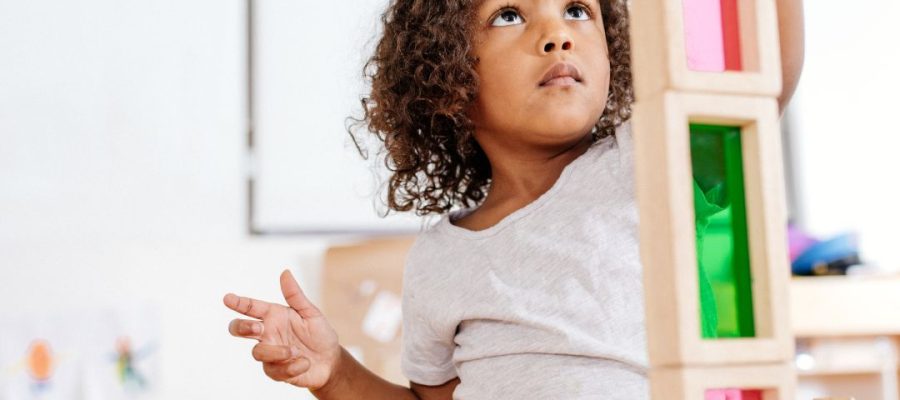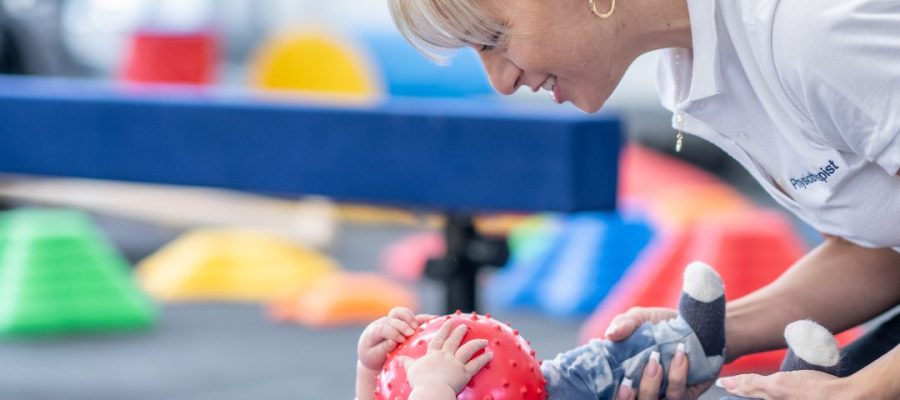Choosing the best childcare can be difficult and stressful. You want to choose a center where your child will be happy, loved, nurtured, and safe—but it can be challenging to identify the hallmarks of an exceptional facility in a single visit. Don’t be concerned.
These nine crucial questions will assist you in determining the answer. Inquire at each center you visit about your child’s home away from home!
Does the teacher enjoy working with children?
Caring responses from adults are critical in developing a child’s brain during the first few years of life. When you visit a center, note how the teachers interact with the children: Are they friendly and helpful? Do they pose challenging questions to foster learning? When speaking with children, look for teachers that smile and chat with them, share jokes with them, and physically get down to their level (this shows kids that their point of view matters).
How will my child learn at each stage and age?
More than 70% of brain development occurs before the age of three. Thus a tremendous educational approach in these early years is essential. A quality learning center will include activities and learning goals for each age group, and the personnel should be able to describe their education program adequately. Inquire about specific activities and how they help your child learn and grow: Is tummy time available for babies to help them gain strength and confidence? Do group art projects help toddlers learn to share? Do preschoolers learn the alphabet through enjoyable, hands-on activities?
Is my child going to be happy here?
Children in a warm and welcoming environment are happy and eager to learn—so when you visit, trust your instincts. Is this a welcoming center? Are the kids happy and healthy? Are the rooms tidy, well-organized, and well-kept? Is there a friendly and safe outdoor play area?
Are good books easily accessible?
It may appear to be a minor question, but when you’re just two feet tall, it’s a major one—and the answer can reveal vital information about the center. First, having good books available demonstrates that the school encourages reading and literacy; second, having bookshelves low enough for children to reach demonstrates that the classroom is designed with children in mind. What is the significance of this? When children can choose their own books (or toys or hobbies), they can develop their own curiosity, independence, and confidence.
Is my child’s teacher fantastic?
When you visit a classroom, inquire about how the instructor makes reading and math enjoyable. A qualified teacher will have many fantastic ideas, from goofy alphabet sing-alongs to counting ladybird spots. Take note of whether she offers open-ended questions to the children, such as “How did it happen?” or “What do you see?” Such inquiries develop critical and innovative thinking. You might even wonder how she promotes social and emotional development—these essential skills help children excel in school and are best taught in the early years.
How are children kept safe in an emergency?
Emergencies, such as floods, fires, or tornadoes, can strike at any time, and your childcare facility should always be prepared to keep children safe in the event of a disaster. When you visit, discuss emergency preparedness with the center’s director.
- Is at least one member of staff trained in first aid and CPR?
- Are frequent fire and disaster exercises held?
- Is the facility well-stocked with emergency supplies and food, and water?
- How will the center communicate with families in the event of an evacuation?
Are children accepted for who they are?
During a visit, look for teachers and the center director who make a real effort to connect with your child. Did they inquire about his name? Did they involve him in class activities and ask about his interests? Were they aware of his emotions? Teachers who celebrate the developing personalities in their classrooms, whether by going deep into dinosaurs or cheering on a cautious walker’s first steps, help youngsters discover new passions and hobbies, encourage independence, and teach the entire class to respect and care for others.
Did I feel like I was heard?
Is the center’s staff questioning you? Good teachers and center directors will actively seek to understand and respect your family’s needs, whether you’re concerned about your preschooler’s reading skills, your baby’s nap pattern, or particular dietary restrictions. Did the personnel answer your queries openly and honestly? Good communication between families and center staff can aid in the resolution of a wide range of daily childcare issues (from potty-training difficulties to a misplaced treasured teddy bear), so make sure that open discourse begins with your first visit.
Will my kid be safe even when they sleep?
Any childcare center you visit should be well-versed in Safe Sleep standards of care and strictly adhere to them (especially in the infant room). Ask teachers and center directors about their safe sleep routines while on tour: Is it customary to place babies to sleep on their backs? Are stuffed animals and other suffocation concerns absent from cribs? Most crucial, is a mindful instructor keeping an eye on the youngsters as they sleep?
At Fraser River CEC, we’re committed to building warm, welcoming, and supportive classrooms for children of all abilities, backgrounds, and experiences. Visit Website. We are best childcare, infant care


